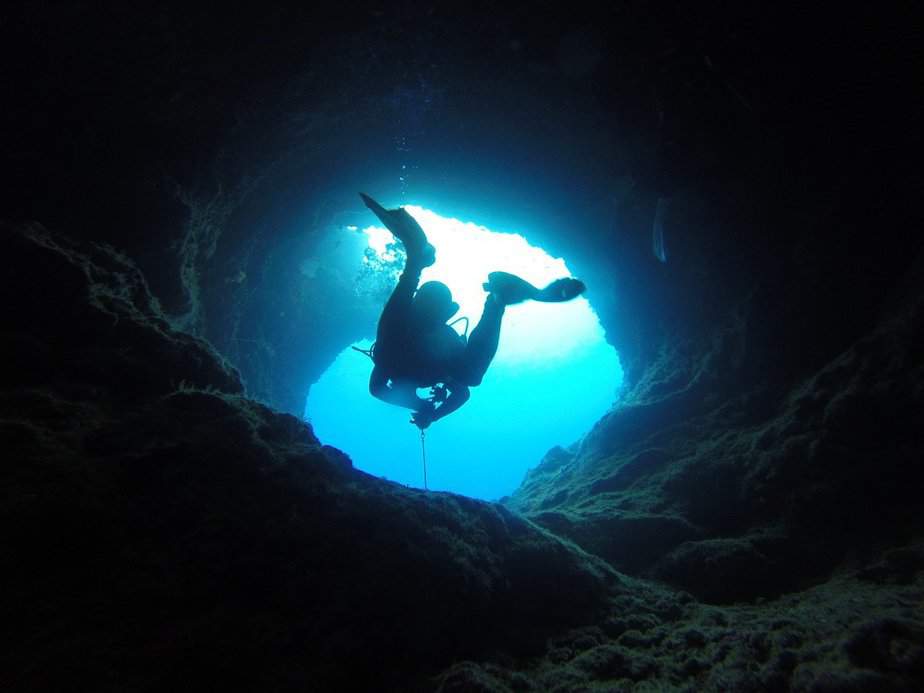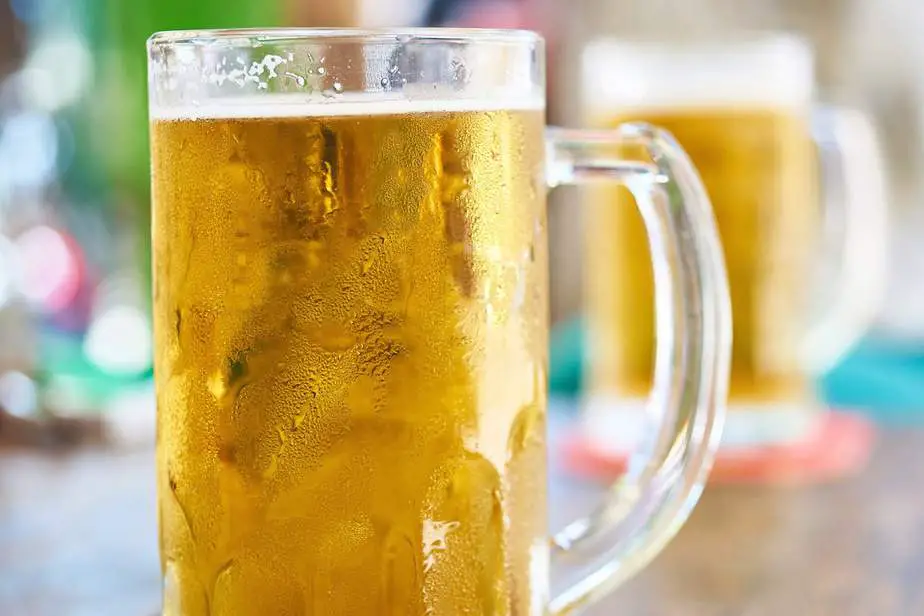Just as important as knowing what you should do before a dive is knowing what you shouldn’t do. Much emphasis is placed on what to do during a dive, but I feel like sometimes the steps leading up to a dive should be taken more seriously. Do you think it’s a good idea to spontaneously walk up to a dive center or hop on a buddy’s dive boat and go for a quick dive? Of course not, you need to be prepared in order to avoid the pitfalls a beginner diver might fall into.
In order to be safe and responsible, there are some things you should avoid before diving because it can lead to an uncomfortable or dangerous diving trip. Some of these tips might seem obvious, some less so, however they are all important things you should keep in mind and avoid doing before scuba diving.
What NOT to do before diving
Drink alcohol
You wouldn’t drink and drive, would you? So why would you drink and go scuba diving? It should be stated for posterity that alcohol and scuba diving don’t mix. Alcohol impairs your coordination and clouds your judgment which is bad enough on land, and it’s even worse when you’re 18 m underwater.
There are so many reasons why alcohol is detrimental to scuba diving. We really have to stress that alcohol impairs your judgment. Combine that with the effects of nitrogen narcosis, which is kind of like being drunk already, then one’s impairment will reach an unmanageable level that no diver can handle.
When you’re scuba diving, you must make rational decisions. For example, you’ll want to stay within your depth and no-decompression limits, to surface slowly, and to make a 3 minute safety stop 3-5 m from the surface. When divers drink alcohol before a dive, it has been found that they seem to disregard safety protocols without even realizing it.
That seems to be a common theme of alcohol – it makes you do things you wouldn’t normally do, and often you don’t even realize what you’ve done. Alcohol can make divers less aware they are experiencing symptoms of decompression sickness, or that their body temperature has dropped and they are on the verge of hypothermia.
It doesn’t even take much alcohol to cause impairment. You do not have to be blackout drunk or even tipsy to be impaired. Having a couple of cans of beer before or in-between dives is enough to degrade performance to dangerous levels. In fact, even the previous night’s drinks can still affect you the next day.
Another problem alcohol can cause is dehydration. Since alcohol is a diuretic, it increases urine production in your body and makes you want to pee. Dehydration is one of the primary causes of decompression sickness. Being hungover from a heavy night of drinking can make idyllic diving conditions seem challenging and seasickness more likely to occur.
We get that you’re most likely diving on vacation and want to have a few drinks. That’s fine, as long as it’s after the final dive of the day, and that you’re moderating yourself. Consider drinking more water or energy drinks to replenish the fluids and electrolytes your body loses.
By the way, coffee and tea are also diuretics which can dehydrate you quickly. At least they don’t make you drunk, but they’re not exactly a good option either. It’s recommended you limit your alcohol, coffee, and tea consumption if you’ll be scuba diving, and it’s even better if you can completely abstain from it so there’s no risk of impairment due to alcohol during a dive.
Be sleep deprived

Did you know that after 17 hours of being awake, our alertness and dexterity is similar to the effects of having a blood alcohol concentration of 0.05%, which is considered “impaired” according to US law? After 24 hours without sleep, the body is in the same state as if it had a BAC of 0.1% – higher than the 0.08% BAC that determines if someone is legally drunk. In other words, being sleep deprived is just as bad as if you were drinking alcohol.
Vacations are often hectic. You want to maximize your time, so right when you get off the flight you decide you don’t want to waste a day and you start your activities. Due to the excitement of your vacation plus being in your new environment, maybe you don’t get the best sleep each night either. What all of these things can eventually lead to is a dangerous situation when you decide to go scuba diving.
Diving when tired is dangerous for the same reasons discussed in the “Drinking alcohol before diving” section above. If you reach a destination tired, dehydrated, and drowsy, then you are not in a good condition to scuba dive. Even if you slept on the flight over, it’s a good idea to wait until the jet lag has subsided before you go scuba diving.
A good night’s rest before a dive is necessary to ensure you’re physically and mentally prepared. You want your mind to be sharp and your decisions to be rational. Being impaired in any way, whether it’s by alcohol or sleep deprivation, leads to dangerous situations. Being tired may also increase the risk of decompression sickness, so catch up on your Z’s before a dive.
Take recreational drugs

In a similar vein to alcohol impairment, taking any recreational drugs that can alter your situational awareness or behavior can make accidents likely to occur. Even if you’ll be diving in shallow waters, it’s too much of a risk. The effects of nitrogen narcosis can occur in depths as little as 10 m (33 ft), and this only compounds your problems.
When you are impaired, your coordination will be affected as well as your decision-making ability. You may forget to check your gauges, fail to heed warnings that your dive computer is displaying, or not pay attention to your dive buddy. Furthermore, recreational drugs may stay in your body longer than alcohol, so you may need several days to get it out of your system before you can safely dive.
Once again, it bears repeating, drinking alcohol would fall into the category of taking a recreational drug. There are so many downsides to it including impairment, dehydration, and difficulty sleeping afterwards. Do not drink and dive, people.
Dive without medical clearance
You don’t have to get a medical check-up before every dive, however every 1-2 years you should get it done. Whenever you’re handed a medical statement, you’re not just filling it in without taking it seriously, are you?
Particularly if you’re an older diver, you should evaluate your physical and mental wellness before a dive. After the age of 45, you should get a yearly medical checkup to ensure that you haven’t developed any conditions that can prevent you from scuba diving. Your fitness and health changes over the years, and we have to confront the sobering thought that we’re actually declining over time.
If last year your doctor said you were still “fit to dive”, maybe the diagnosis is different this year. If you feel unwell or suspect you may have a problem, you should check with a doctor before diving. If you start taking new medications, you need to check with the doctor that it’s safe to use before scuba diving.
Just because a medicine is generally safe to use on land does not mean it’s safe to use before diving. The high pressure at depth may cause the medication to react differently and result in severe side effects, so get a medical professional’s opinion first.
You’ll also have to consider your physical fitness. Scuba diving is a sport that requires some physical exertion (e.g. from all of the kicks you have to do) and your heart and lungs need to be able to keep up with the exertion. Furthermore, you may have to deal with rough currents that require you to react quickly to safely break out of it.
Take an extended break

Sometimes passions can fizzle out or life gives you lemons or for whatever reason, you stopped scuba diving for years. The thing about the Open Water Diver certification is that it never expires. That may seem like a benefit, however it also encourages people to take long breaks and come back having forgotten the basics.
If you take long breaks, it can get harder to come back to it because the unfamiliarity of it might discourage you. Your skills may have faded, plus now you’re even older, so perhaps your confidence is not so great anymore. But you push on, because you want to get back into it.
We aren’t against divers returning after a long break, however our warning is that you should probably take a refresher course with an instructor and not let your enthusiasm cause you to attempt a dangerous dive. It’s also possible you’re extremely confident and think you can pick up diving like riding a bicycle, however you’d be surprised at how much you’ve forgotten.
Scuba diving can be complicated with all of the equipment checks, buddy checks, safety stops, dive table calculations, and so on that you need to do. Perhaps this used to be second nature to you, but forgetting even one or two steps can jeopardize your safety. Maybe you used to carry out the most extreme dives effortlessly, but after a long break, you should ease your way back into it until you’re a competent diver again.
Dive without a plan
The golden rule of diving is to “plan your dive and dive your plan.” It’s taught to all new divers and to this day this advice rings true. Some people might skip this step because they are lazy, or feel that they are experienced enough to not need a plan.
Dive plans don’t have to be complicated. Just have something to ensure that both you and your dive buddy knows the crucial details like bottom time, maximum depth, exit points, what to do in case of an emergency, and how to end a dive based on air consumption rate.
Part of your dive plan can include notifying family and friends of your location so they’ll know when to expect your return and what to do in an emergency. Everything we just went over only takes a few minutes to plan out. Dive plans don’t have to be long and complicated, but they need to address all the crucial details. If you don’t have a dive plan and end up in an emergency, your chances of survival drop.
Ignore the dive briefing
When diving in a group, even veteran divers know they should pay attention to the dive briefing. Not only is it the polite thing to do, it’s also how you get essential details on dive procedures, points of interest, and safety information.
The fastest way to earn everybody’s ire is to ignore the dive briefing or act like you already know everything. It’s made even worse if you end up doing something you were explicitly told not to do, or get caught in an easily avoidable situation had you listened.
Listening to the dive briefing can remind you of something you’d forgotten, gain new information, and reduce the chances of mistakes or problems occurring. If you’re a beginner, hearing the briefing will also help you realize if a dive might be a little too advanced for you, and that you may need extra assistance.
Eat a large meal

There are foods that you should eat and there are foods you shouldn’t eat before going out for a dive. The right foods will give you energy. The wrong foods will make you feel bloated, sluggish, and unenergetic. However, not only are the types of foods you eat, but also the portion sizes. Even if you eat healthy, eating too much will feel uncomfortable.
We recommend eating a simple meal 2-3 hours before a dive. Try to eat starchy carbs such as rice, pasta, potatoes, oats, and whole wheat grains. Also eat fruits like bananas and apples as well as vegetables. For fats, consider eating boiled eggs or nuts.
Stay away from “heavy” meals like steak, acidic fruits, as well as oil and spicy foods. These can upset your stomach and you may feel an urge to burp or vomit. Also be wary of eating the local cuisine because your stomach may not be used to the foreign bacteria. Give yourself some time to adjust to your new environment before diving.
Neglect your dive kit
Badly maintained gear is the cause of many delays, cancellations, and accidents underwater. It’s a shame, because maintaining your dive kit is actually quite simple.
After each dive, rinse your kit in freshwater, hang it in a cool, ventilated location away from direct sunlight, and store it properly. Before each dive, check that your gear is still in good condition after its time in storage.
We highly recommend you carry a ‘save a dive kit’ which comes with spare O-rings and other standard parts so that you can do a little bit of DIY repairs in the field.
Skip the buddy check
The buddy system has helped prevent many accidents over the years, and not sticking with your buddy is a big mistake. Even if you are doing a solo dive, you will often start off as a group before splitting apart on your own paths.
Don’t assume that because you have been on many dives with your dive buddy that you don’t need to make sure you’re both ready. You should check each other’s equipment, making sure that it’s all present and in good working order before the dive. You should also go over the dive plan at least once to make sure you understand what to do during an emergency.
Parting words
Despite scuba diving being an extreme sport, it’s considered one of the safest and most fun ones out there. With that said, the reason why scuba diving is safe is not because of anything inherent to the activity itself, but because of the divers’ diligence. By using the appropriate gear, eating the right foods, getting enough rest, doing things cautiously and listening to the dive briefing, you can avoid most problems when diving.
You might also be interested in our article on eating and drinking food during a dive.
Last update on 2024-07-15 / Affiliate links / Images from Amazon Product Advertising API


